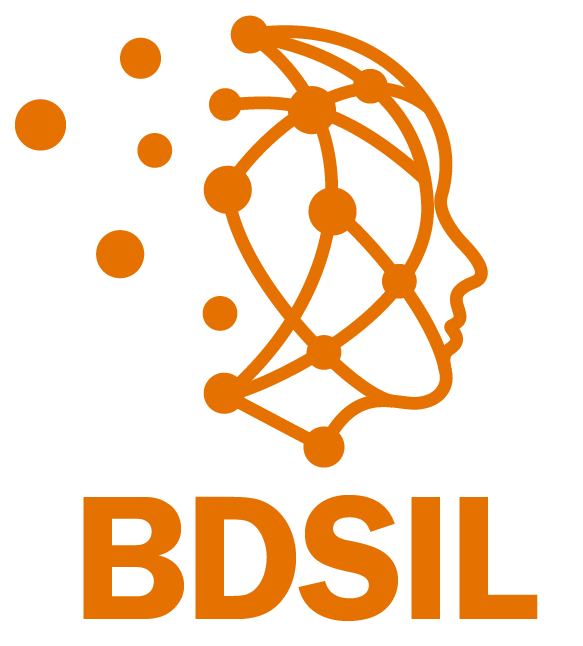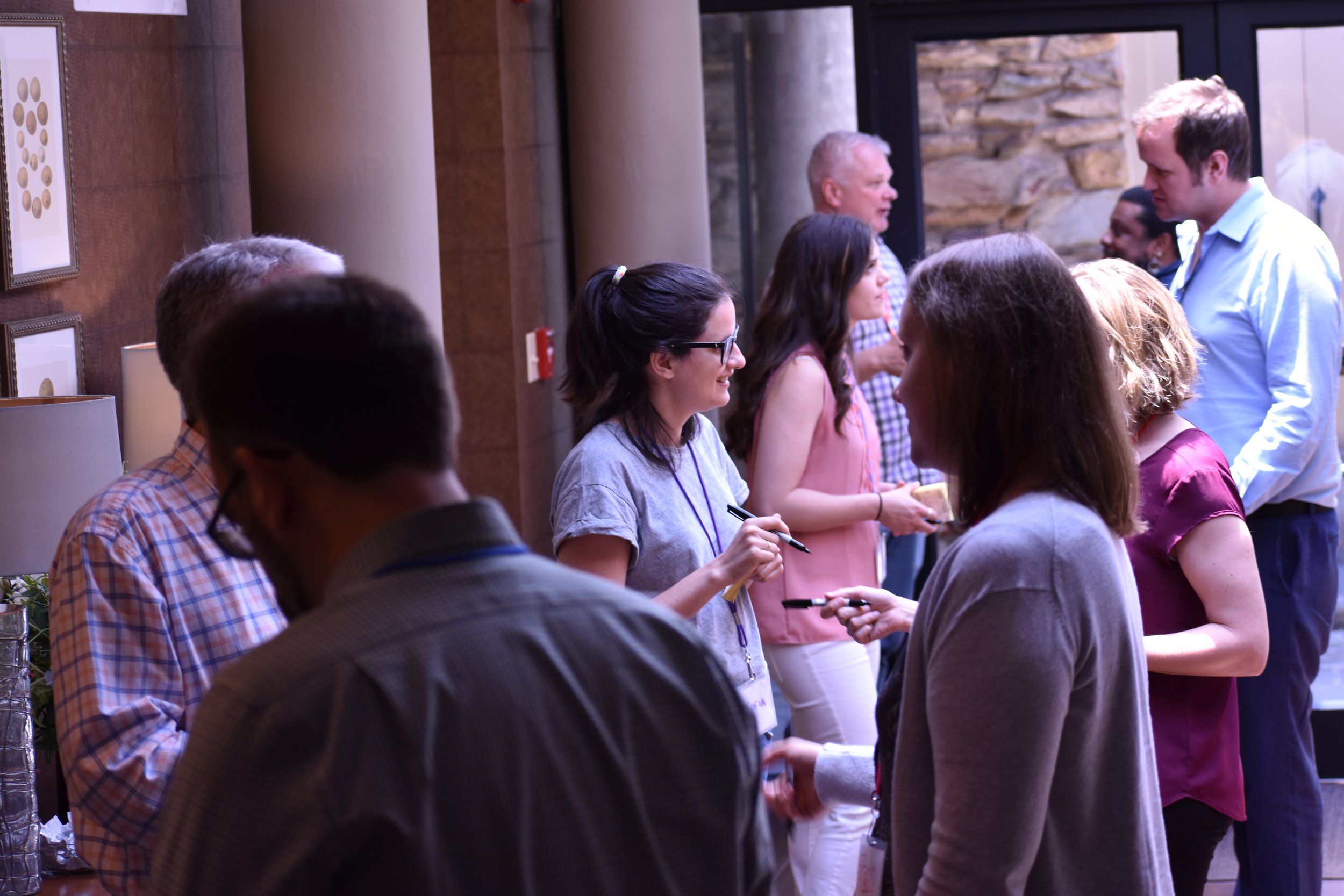2024 BDSIL
Building Partnerships for Generative AI Training in Biomedical and Clinical Research
"I made so many great connections and left bursting with energy."
— Dr. Chelsea Marie Braun, 2023 BDSIL Participant
How can those with expertise in the development of AI, large-language, and generative content models join forces with biomedical science educators to provide insight and guidance on training about, using, and leveraging these tools?
The goal of the 2024 Biomedical Data Science Innovation Lab (BDSIL) is to foster the formation of new interdisciplinary collaborations which will generate creative strategies on the use of data science approaches for creating new strategic partnerships between AI developers, biomedical researchers, and educators.
The Lab is intended to bring together quantitative and biomedical researchers, with expertise from the mathematical, statistical, basic science, and clinical biomedical fields, to address topics in biomedical data science critical to informing the responsible use of AI in biomedicine. Members of the NIH-NCATS community are important contributors to these conversations. The term “biomedical” used here is in the broadest sense to include Basic Science, Behavioral Science, Biology, Mental Health, Clinical Research, Epidemiology, Population-level Science and all areas of biomedical sciences where predictive modeling, time series analysis, geospatial modeling, population genetics, etc., would be of utility. Likewise, the term “quantitative” is being used to include Applied Mathematics, Computer Science, Data Science, Pure Mathematics, Natural Language Processing, Machine Learning, and Statistics which relate to the development of better AI models and approaches for use in research and clinical medicine. Additionally, we seek input from university educators on how to instruct researchers, clinicians, as well as AI developers in how to effectively educate scientists on what AI can as well as cannot do.
Potential topics for the Lab will range across numerous dimensions such using clinical trial results to inform large-language models; training AI models to detect diseases; employing ChatGPT as a means to “test drive” new neuropsychological clinical assessments; utilizing AI in biomedical course curricula; etc. It is anticipated that the project topics collaborations formed during the workshop will result in new peer-reviewed publications and/or NIH/NSF grant proposals to further develop, refine, and test hypotheses. These original research project ideas may lead to new insights and lay the groundwork for future advances in the use of AI in clinical diagnostics, research, and outcome prediction.
The Lab is designed as an extended, exciting, hybrid program of online team-building activities, a series of scientific and mentor presentations, and lectures by guest speakers, all culminating in a five-day in-person intensive event in June 2024 at Bahia Resort Hotel.
Virtual Microlabs
May 3 • May 17 • May 31
12 - 2 PM ET
In May, 2024 our facilitation team will host three BDSIL kick-off events that we call "microlabs". These virtual meetings will allow the selected participants to get to know each other and get a head start on formulating research ideas before the in-person BDSIL.
At the in-person workshop, under the guidance of scientific mentors, interdisciplinary teams of participants will work together to ideate and develop pilot projects for tackling selected problems.
Learn more about the BDSIL definitions and roles.
Application Procedure
Applications for the 2024 BDSIL are now closed.
We welcome a range of expertise to apply including clinical, epidemiological, data scientists, and population-level scientists. Women and under-represented scientific communities are strongly encouraged to apply.
To be eligible to apply, candidates must be in the quantitative and data sciences or biomedical fields, specifically involving generative AI methods (e.g. GANNs, LLMs, Deep Learning, etc), education and mentorship, and at the late-stage post-doctoral and early-stage junior faculty levels.
The application will ask candidates to describe their background, research, interests in the intersection of generative AI methods and data sciences, contributions in education, and their commitment to collaborative/team science. Click here to preview application questions.
Quantitative and data science researchers should provide examples of the types of data science approaches, methods, techniques and the potential to utilize these techniques in diverse research areas wherein mathematical modeling, machine learning, and AI might be applied. Investigators with firsthand experience working with data science methods, software, and visualization platforms such as C/C++, Python, Cytoscape, Gephi, MATLAB, Neo4J, R & R Studio, Sci2 Tool, Tableau, and 3D visualization (Blender, Houdini, Maya, Autodesk, etc) are encouraged to apply.
Biomedical researchers should justify their research focus and be able to leverage data relevant to empirical research, clinical trials, multi-site consortia, etc. Importantly, faculty engaged in university teaching, data science focused workshops, mentorships, T32 and other major training awards, are encouraged to provide their materials.
Exemplar areas of quantitative and biomedical interest are suggested in Expertise Needed.
Review of applicants will be rigorous and not all candidates will be selected to attend. A particular emphasis will be placed on candidates demonstrating a strong commitment to collaborative/team science and those with a high impact track record of peer reviewed publications. A committee will select approximately 30 of the applicants to take part in this one-of-a-kind event. Selected candidates will have their travel and lodging expenses fully covered, though must commit to engaging in all of the virtual "microlabs", as well as staying for the entire duration of the 5-day event in June, 2024.
Questions? Please see our FAQs or contact us.
"It is an outstanding opportunity to get to know some brilliant minds and connect."
— Dr. Diana Ferro, 2022 BDSIL Participant
Useful Links on the Responsible Conduct of Research
https://oir.nih.gov/sourcebook/ethical-conduct/responsible-conduct-research-training
https://med.virginia.edu/policies/research-compliance-and-training/







